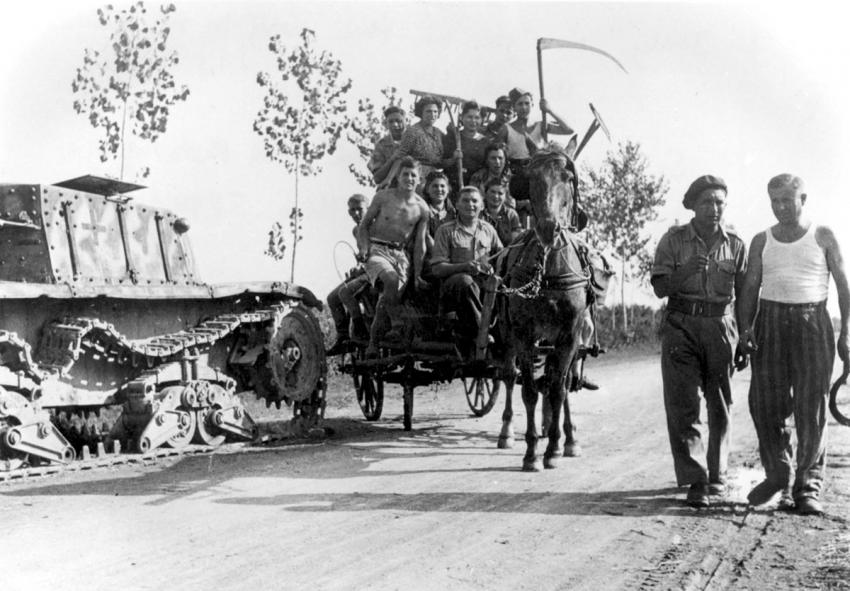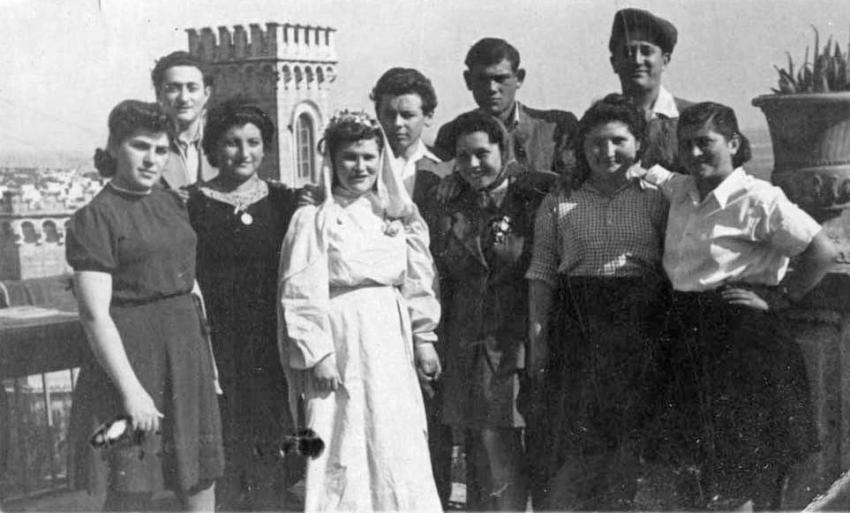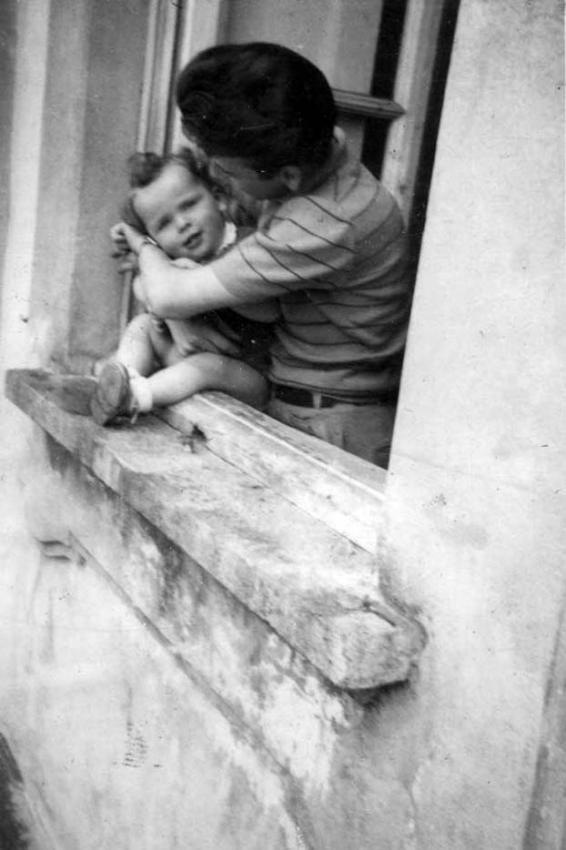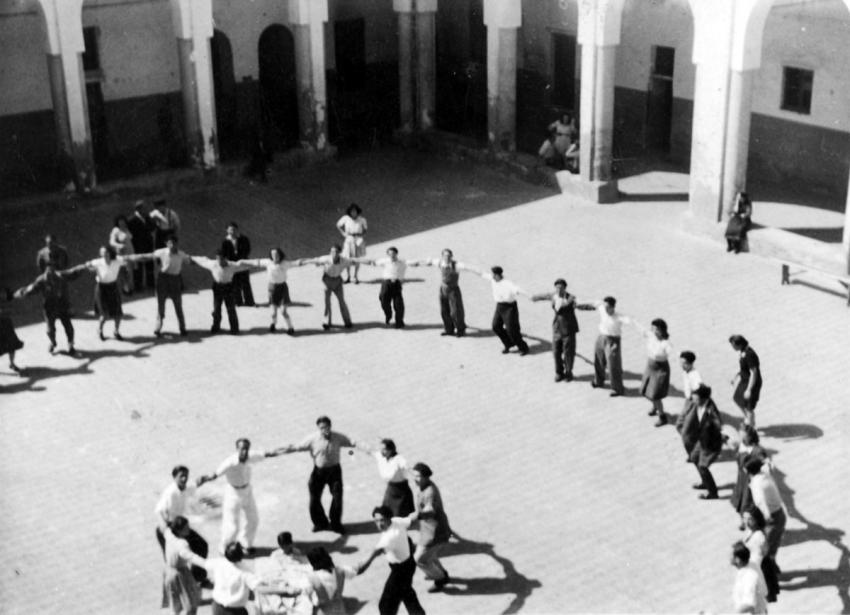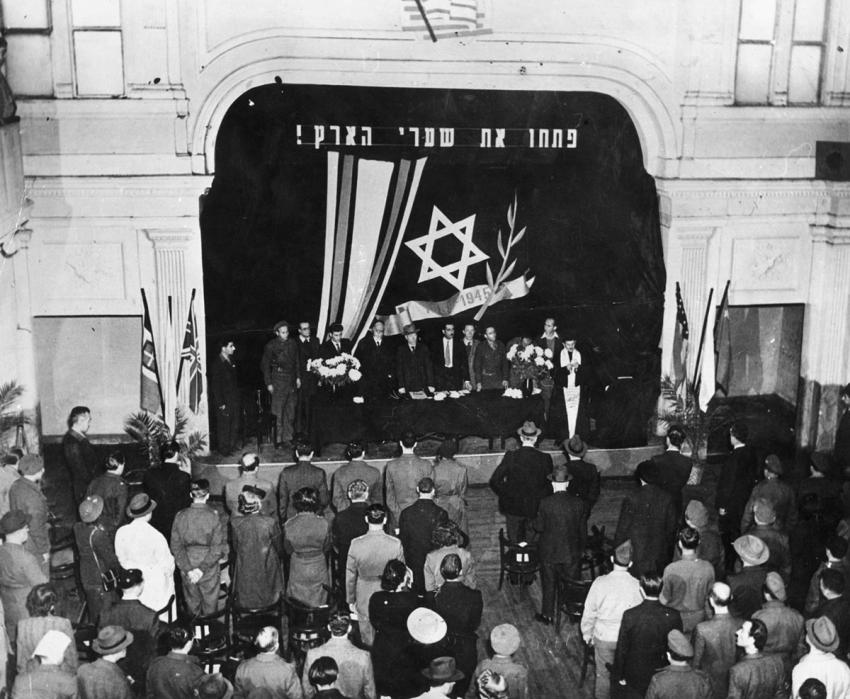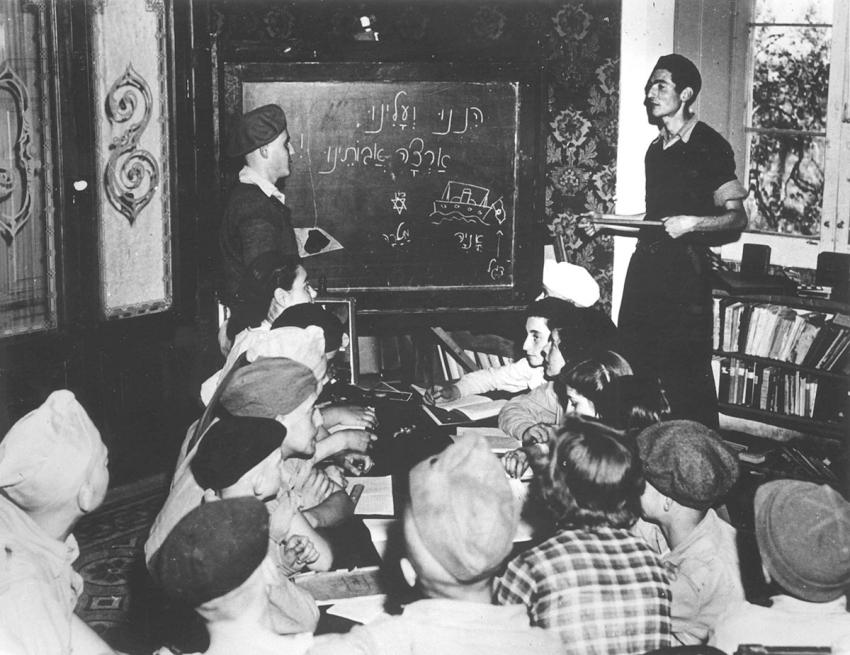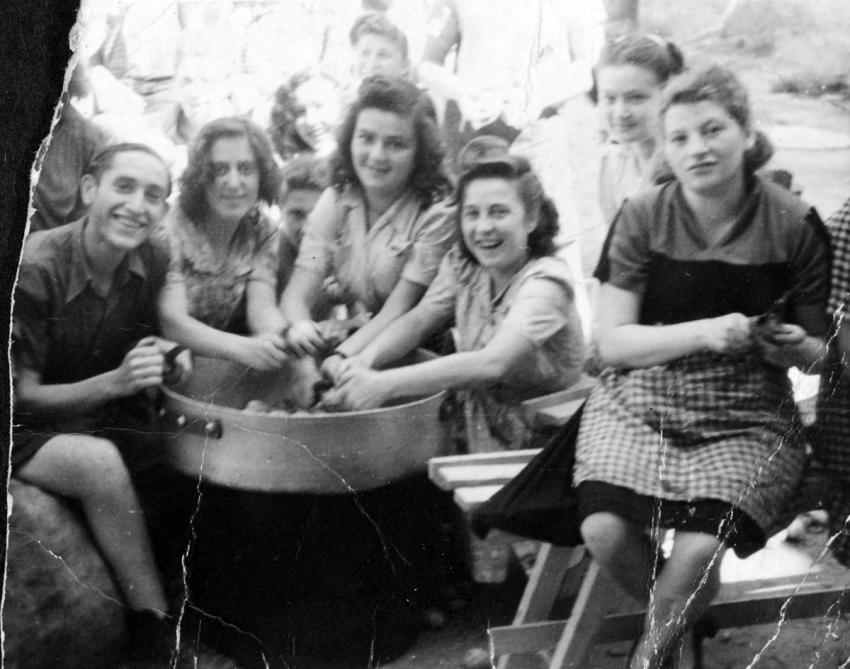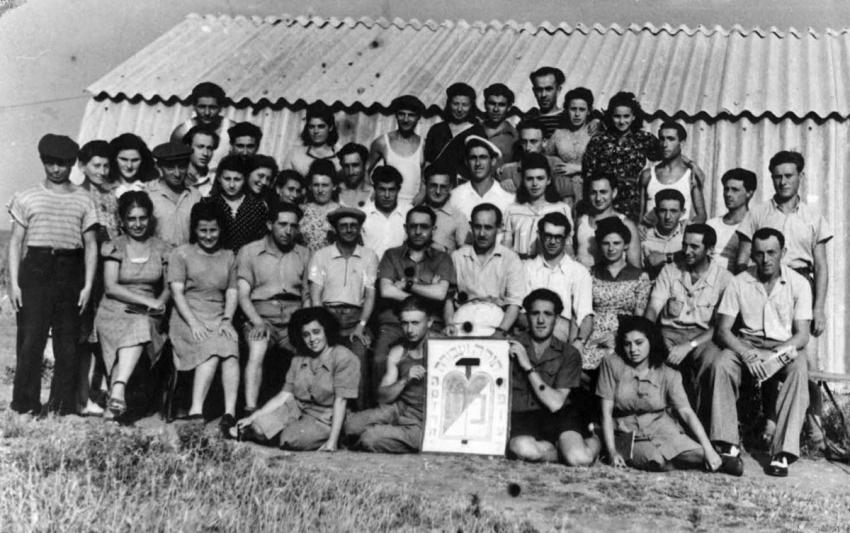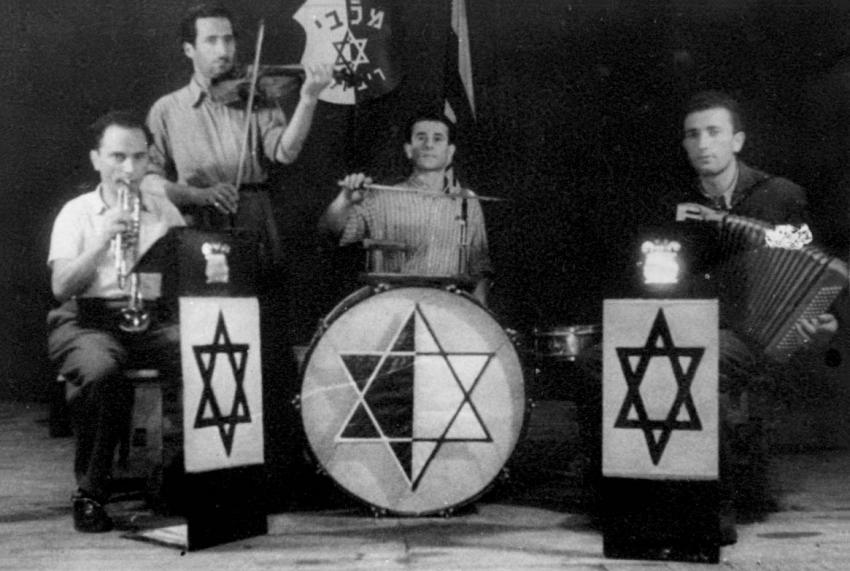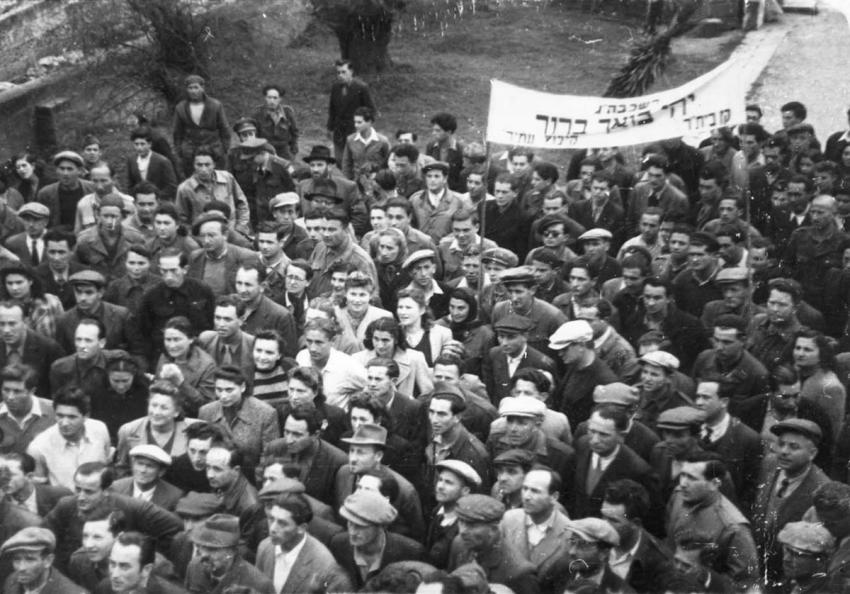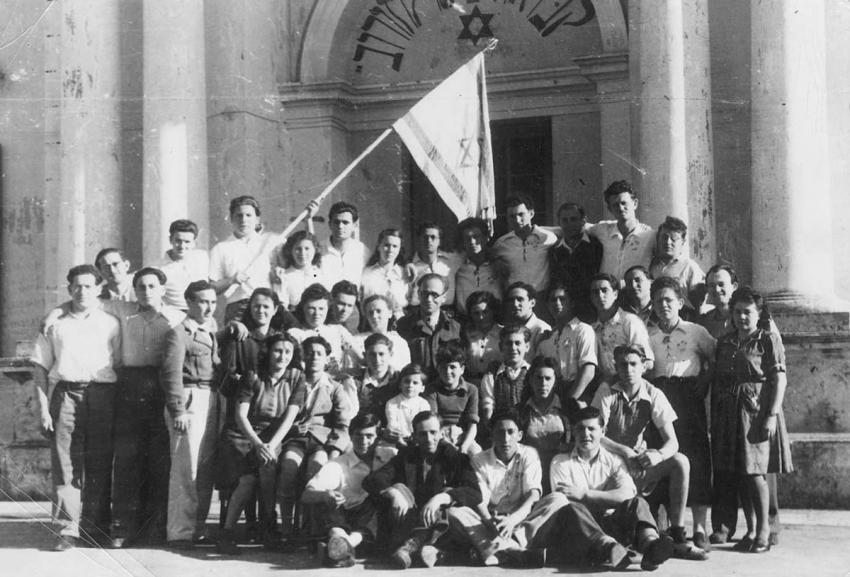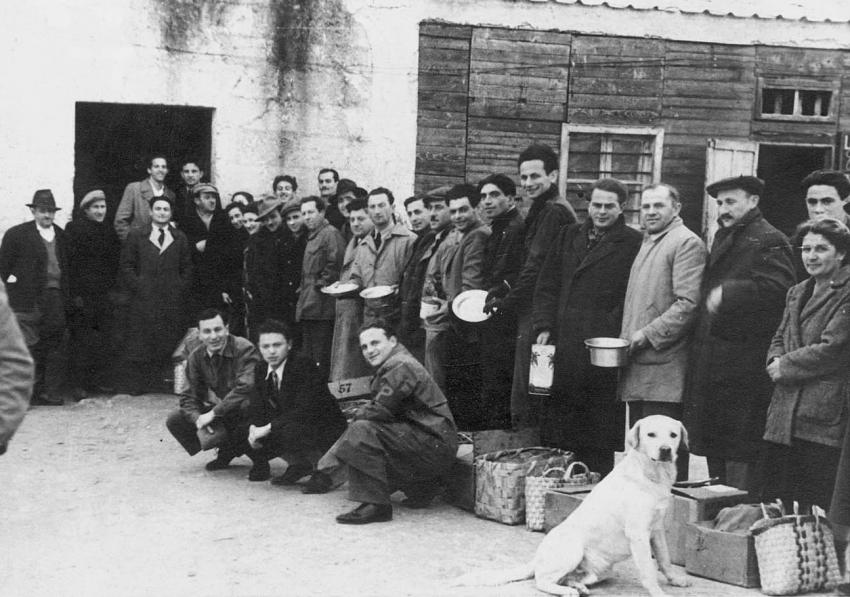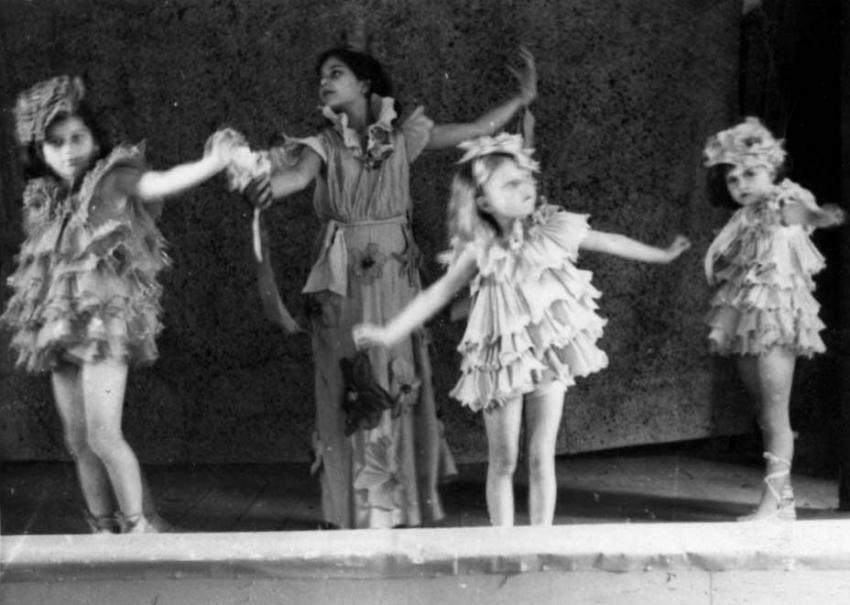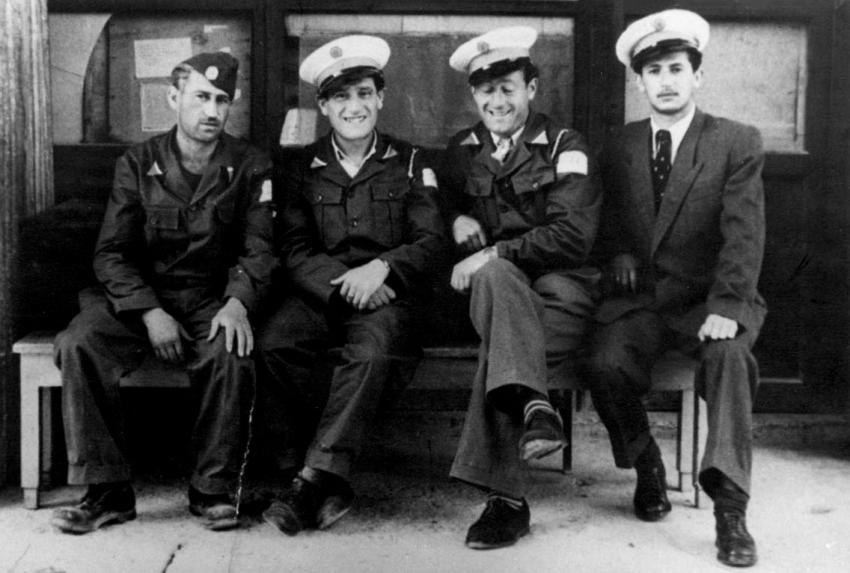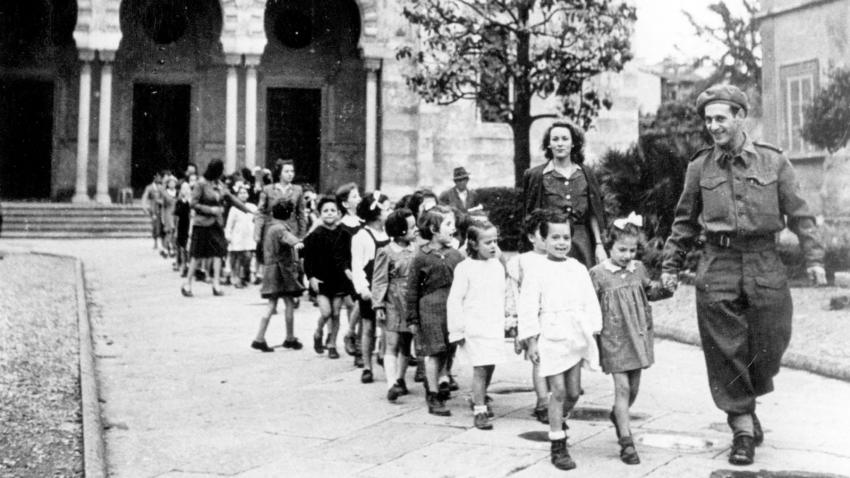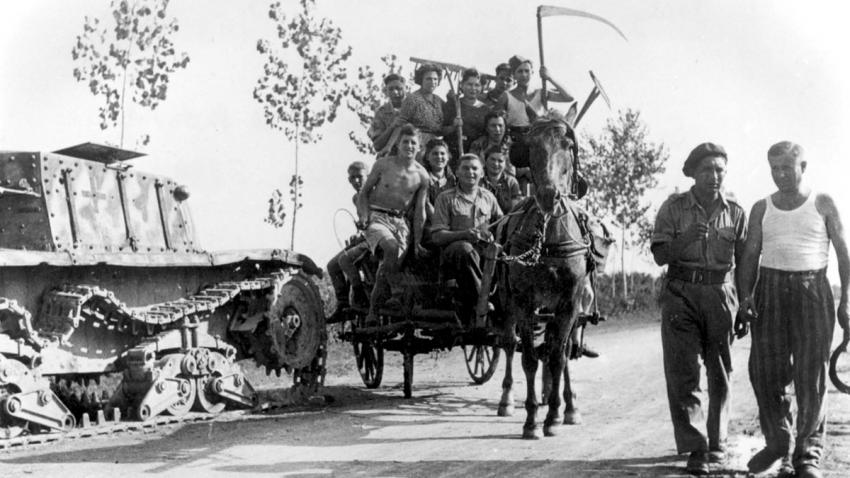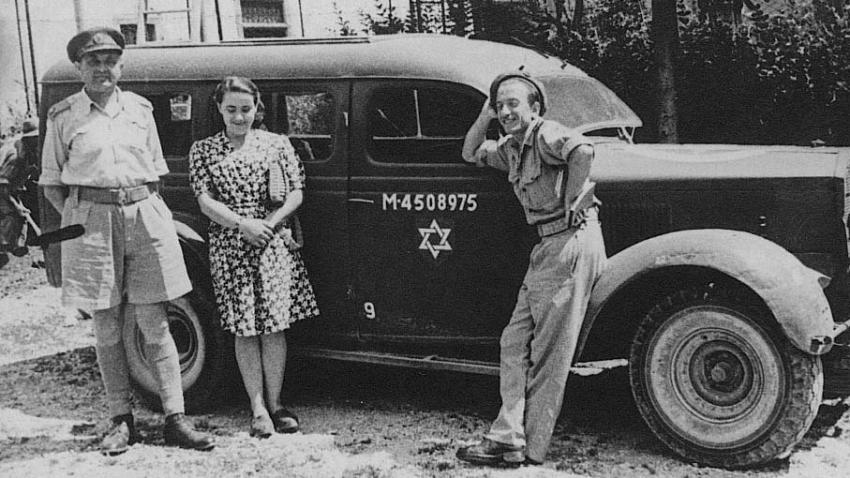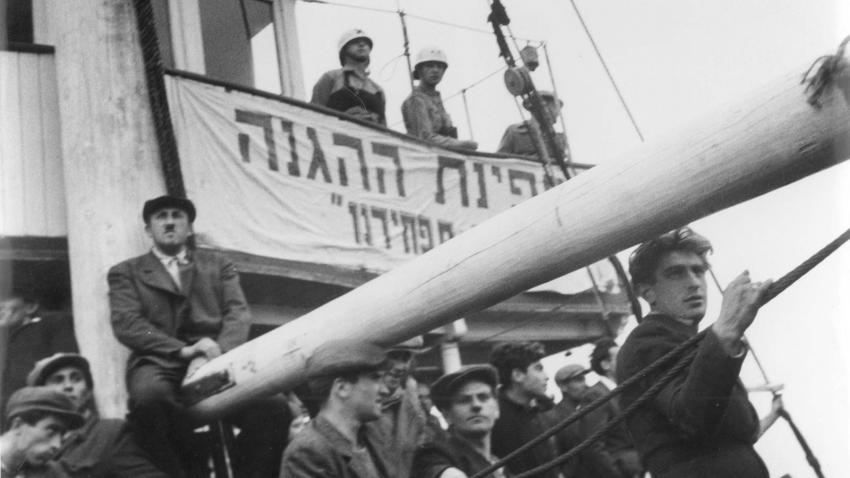Daily Life in DP Camps and Hachshara Centers in Postwar Italy
The Jewish Brigade soldiers left Italy at the end of July 1945. By the following summer the Eretz Israel units in the British Army had been disbanded. The soldiers were discharged from service and left Italy. The British Army ceased to serve as a source for supplies and the financing of activities, and was replaced by the Joint Distribution Committee, UNRRA (United Nations Relief and Rehabilitation Agency), and the Jewish Agency.
Poverty and hunger prevailed in the DP camps, sanitation and medical conditions were poor, and work opportunities were scarce. Many were overcome with despair. The survivors found it hard to be in a "Lager" (camp) situation again. Among some of the camp survivors, work evoked associations of forced labor. The survivors had been stripped of their homeland, were grieving for the past, and lacked a foreseeable future. For many, Eretz Israel was a lifesaving anchor. Demonstrations against the British and hunger strikes were organized in demand for Aliyah to Eretz Israel.
Mordehai Braun recalls his first days in the Modena camp:
They housed us in a military academy in Modena. It was nice, I mean, it was not a hotel… there were all sorts of classrooms. We slept in hallways, in rooms. Somehow they gave out blankets, and that's what there was… Every day we heard yelling: Kapo! Kapo! They found some Jew who had been a Kapo in the camps and they lynched him with beatings. I started working in town and earned money, so I could buy all kinds of things that I wanted, and I could also go to the cinema.
The survivors assumed that Italy was just a way-station pending their emigration; in a survey carried out among more than 9,000 displaced persons in Italy and published in February 1946, almost all expressed the desire to go to Eretz Israel. Already in November of 1945 a conference of DP representatives from all over Italy took place in Rome, with emphasis being placed on survivor rehabilitation and immigration training, in cooperation with welfare and aid organizations. At the same time, a diverse cultural life flourished in the camps: classes for children's education opened, language courses and employment workshops for adults were instituted, as well as lectures and shows. Yiddish newspapers were published, the most important being Baderech (On the Way), the official newspaper of the Jewish refugees in Italy.
Mordehai Greenberg, who was 12 at the time, recalls life in the refugee camp near Rome:
We arrived in Rome, and were taken straight to Cinecittà (film studios in Rome constructed during the Fascist era). This was the city of movies. The entire right side belonged to refugees from Naples, from all sorts of places, from the shellings. The left side was for the more distinguished crowd, all with different nationalities, foreigners who had been thrown into the war. I had friends there from Yugoslavia, France, from many different places. We also studied there. Once, we performed in some Hanukah party that the scouts in Rome organized…We had a room, others lived in a recording studio, so they just put up dividing walls made out of cardboard… One day they took us to the Brigade's show in Rome. [Yossi] Yadin and Hannah Meron were there… 60-70 of us went there by truck. We hardly held onto the ladders. We traveled standing up.
As well as some 35 refugee and DP camps operating in Italy, there were also approximately 45 Hachsharot (Pioneer Training Collectives), where young Holocaust refugees were educated about work ethics and social solidarity, learned Hebrew, received agricultural training, learned about Eretz Israel, and made preparations for Aliyah. Men were trained in arms so that they would be able join the army on arrival in Eretz Israel.
Mordehai Braun recalls joining a kibbutz in Italy:
We drove with some group, they gave us a room inside a house and said that this would be Kibbutz Dror Habonim. I didn't know what a kibbutz was or what Dror Habonim meant, but I went there… They received us nicely. I drew pictures of Herzl and Bialik on the walls there... They were big pictures… Everything was communal, there was a communal kitchen… From there they moved us to Cesaria, where we got organized. There were weddings, and we also – my wife [Dolly] and I – got married in Kibbutz Dror.

